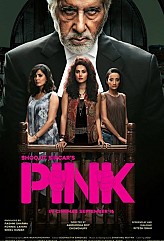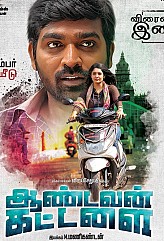Thoughts on Premam, Telugu remake
Home > Visitor Columns

Behindwoods.com isn't responsible for the views expressed by the visitor in this column. The visitor claims that this column is his/her own. If the column infringes any copyrights that you hold, please email us at columns@behindwoods.com.
When Alphonse Puthren made Premam, there were basically two reactions. One section of people said that Premam was a good cinematic experience with great casting and music. The other section wrote off Premam saying that it is just a modern version of Cheran's Autograph. I belonged to neither and wanted to join one. So, I watched the film with subtitles as I cannot understand Malayalam in the first place. After watching it, I did realise that both opinions were right in their own, but the former made more sense. Because, Autograph was a gritty and realistic film as opposed to Premam, which was fun and poetic. Both were long, slow, and had bittersweet moments to offer. When Premam was rumoured to be remade in other languages, many have opposed it. Filmmakers like Selvaraghavan, who made several realistic romantic films in the past, too made it clear that this film cannot be remade at all. He then added that none other than Puthren could to proper justice to the remakes, helmed if any. Finally, when the Telugu remake of Premam was announced, the criticism it received was understandable. But once the casting was revealed, this criticism turned into a nasty trolling especially in the case of Shruti Haasan, who reprised the role of Malar played by Sai Pallavi in the original.
So, having watched the original, I made my way to a nearby theatre screening Premam's Telugu remake, also titled Premam (To avoid confusion, I shall refer the Malayalam version as original and Telugu version as a remake). Not with any intention to judge, but because of it's director - Chandu Mondeti. Mondeti was well known for his debut film Karthikeya (this is his second), a clear thriller on rationalists finding the divine as a driving force rather than a tradition or a revered figure. I loved his flair for comedy and wanted to see what he can do to this soulful subject (as Karthikeya was not so emotional). When the remake came to an end, one thing was very clear. The remake is a faithful adaptation of the original's basic structure. Many small and subtle changes have been made in the process. Having said that, the soul of the original has not been tampered in retelling the story and if rational enough, one can sense a proper respect towards Puthren's art and honesty in giving it a makeover in the efforts of Mondeti and team.
Most of the people know the story, so I would keep it very short here. Vikram, a reputed chef, has three love stories in his life: Suma, a tenth class student; Sithara, a lecturer; Sindhu, his childhood neighbour. All who watched the original surely know the way these unfold, so nothing to elaborate. For those who are not at all aware of the original, it is better not to spoil their experience. Well, firstly, I would like to make something very clear here. The original was a sort of well-written poetry: magical, metaphoric, full of imagery and intense. The remake is like an honestly penned diary: straight, frank, and nostalgic. The best thing Mondeti has done here is to ignore Puthren's way of narrating. He does not try to improve anything, accepting its faults and shortcomings (more evident in the last phase). He rather keeps it simple. The editing is sharp, the pace picks up speed, some comedy scenes were added (like the "bird story" in the last phase), and some changes to the way these three stories end. But, the last one has a difference. The first one suffers as it gets an abrupt end. But, the student-teacher romance gains benefit from the second change, a subtle and moving one, mainly in the climax. There are neither words nor metaphors. It is just a name, surely not of a person.
Still, if the reader is not actually satisfied, I shall elaborate it. It is not just the language and the actors (mostly male), the backdrops do change. Pauly's George is a middle-class guy, who runs a cafe in the end. Things are rooted here, something I loved. In the remake, well, Chaitanya's Vikram is shown as a reputed chef, a rich one at that. He runs a resto-bar named 'S' with a star symbol beside it. I hope one can decipher its meaning. If not, it is simple: Sithara. There are hints that he still hasn't forgot her, and one such hint at the end relating to a name of something also says very simply that Sithara too is in a similar state. One good thing the remake does is giving some depth to Sindhu's portions, which give some space to subtle romantic and comic moments, a much-needed relief (You know why). And, this diary approach of narrating the original is further strengthened because there are four people here. See, in the original, it was three: George, other characters, us. Here, it is Vikram, his father, other characters, and us. The film is narrated by Vikram's father to us, and it is certain that he would not go deep into every aspect. In this way, Mondeti has the option to drop the dragging portions (read unfit for mainstream) and go with the main, important ones thereby increasing the pace and cutting down the duration. Liking this approach or not is ultimately your opinion.
Coming to the most debated aspect of the remake: performances. Naga Chaitanya looks definitely odd as the 16-year-old. But he scores really well as the student and equally well as the chef. He makes Vikram charming and plain in the second phase, but one may surely miss the edge and depth Pauly brought to it. Having said that, Chaitanya was as natural and grounded as possible. Anupama Parameswaran and Madonna Sebastian reprise their roles from the original and proved to be good casting choices here as well. Now, ahem, to the main one: Shruti Haasan. Here, one must understand the difference between Malar and Sithara. Malar is a teacher who chides her students with a smile, as simple and unpretentious as the Nature itself. Pallavi made Malar sort of memorable with her performance and there was little possibility of refraining from embracing her portrayal. Sithara is not that kind; she can call a spade a spade with a certain level of seriousness. She cannot be friendly enough, but that does not make her a recluse or a bossy-kind of a woman. Haasan's portrayal is mostly subtle, helped by dialogue (dubbed by Chinmayi), safely a mix of Hindi and English apart from fumbling Telugu. I am not judging or defending anyone here, but am just pointing out the difference in the original and the remake, and the way the latter's cast interprets these "re-written" roles. The supporting cast-Praveen, Chaitanya Krishna, Srinivasa Reddy, Brahmaji, Narra Srinivas-did a good job in the roles given to them. Especially, Reddy's bird story and Brahmaji-Srinivas track are a riot. We have three cameos: Arvind Krishna, as Sithara's cousin; Daggubati Venkatesh, as Vikram's uncle (brilliant); Akkineni Nagarjuna, as Vikram's father and also the narrator. None seem out of place.
The remake finds some additional solace from Karthik Ghattamaneni's cinematography. I am someone like whom Balu Mahendra opined as a guy who says "good cinematography" upon watching colourful visuals. Within my limited knowledge, I really loved it, mainly because of the soft lighting employed thereby making it pleasant to the eyes. Not a really technical guy, sorry for that. Music composed by Rajesh Murugan and Gopi Sunder helps the narrative, though it borrows much of its score from the original apart from the hit song "Malare". For me, at least, Mondeti is the unsung hero of this effort which is honest and clean, respecting the original for what it is and striving hard to recreate itself as a different representation. Many say the original is better than this. I agree that the original one was one of the best romantic films in the recent past. I also agree that this remake was not a perfect one (perfect remake, for example, was Papanasam vs Drishyam, but they were made by the same director). Not all fans of the original, Pauly, Pallavi and Puthren can love this remake. But, if seen with an open mind and trying to understand the hard work that went into recreating it, one can understand that the remake was not a lazy one. For all the trolling it has received, this Premam manages to triumph despite being imperfect compared to the dramatic, poetic original. As I said earlier, it is all about perceptions. You want something dreamy and rooted, the original. Something fast and diary-like, the remake.
subhashrajali@yahoo.in
Please send your column to columns@behindwoods.com.



